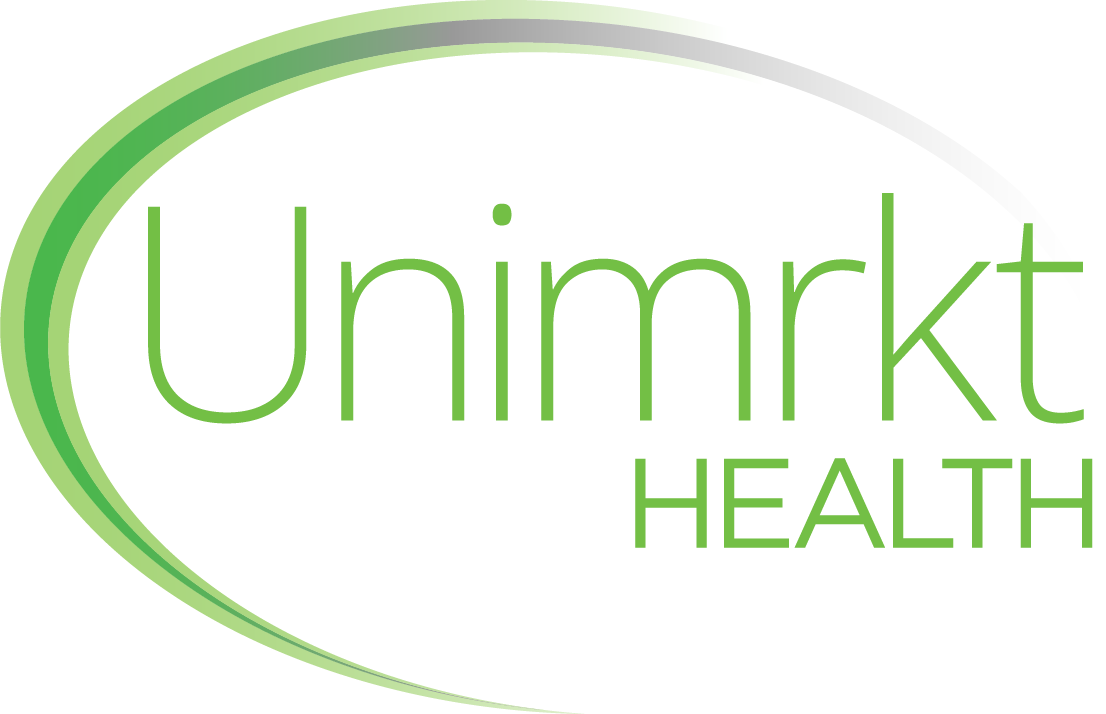The Problem with Patient Lies During Healthcare Research and What You Can Do
- Unimrkt Healthcare » Blog » The Problem with Patient Lies During Healthcare Research and What You Can Do
Healthcare research relies heavily on accurate and truthful patient information to yield valid and reliable results. Unfortunately, patient deception is a significant issue that can compromise the integrity of research findings. However, implementing the right research methodology in health can keep scenarios of patient deception at bay. In today’s blog, we will explore the common scenarios where patients might deceive researchers, the types of lies they tell, their motivations, and the profound impact these lies can have on healthcare research. Additionally, we will discuss different types of health research methodology for preventing patient deception and ensuring the integrity of research data.
Common Scenarios of Patient Deception and Its Impact on Healthcare Research
In healthcare research, patient deception can occur in various forms and settings. Such deception can lead to skewed data, resulting in flawed conclusions and potentially ineffective or harmful treatments being developed. Some common scenarios include:
- Self-reported health status: Patients might underreport or exaggerate symptoms to fit into study criteria.
- Medication adherence: Participants may claim adherence to prescribed regimens while failing to follow them.
- Lifestyle factors: Patients often provide inaccurate information about their diet, exercise, or substance use.
Patient deception can severely impact the integrity of healthcare research. It can lead to:
- Inaccurate results: Compromised data integrity results in unreliable study outcomes.
- Wasted resources: Time, money, and effort are spent on studies that may yield invalid results.
- Misguided clinical practices: Inaccurate data can lead to ineffective or harmful treatments being developed and recommended.
- Delayed progress: Research advancements can be hindered by the need to verify and correct false information.
Types of Patient Lies
Here are some of the most common types of patient lies:
Fabrications
Fabrications involve patients providing entirely false information. This could be inventing symptoms or conditions that they do not have, which can drastically alter the outcomes of a study.
Exaggerations
Exaggerations occur when patients overstate their symptoms or conditions. This can lead to an overestimation of treatment effects or the severity of a health issue, thus affecting the research conclusions.
Omissions
Omissions are instances where patients leave out critical information, such as not disclosing other medications they are taking or relevant medical history. This can lead to incomplete data and misinterpretations of research findings.
Motivations Behind Patient Deception
Understanding why patients deceive researchers is crucial to addressing the issue. Common motivations behind patient lies include:
- Fear of stigma: Patients may hide behaviors or conditions they find embarrassing.
- Desire for benefits: Some might lie to gain access to free medical care or experimental treatments.
- Misunderstanding: Patients may not fully grasp the importance of accurate information for research purposes.
- Perceived expectations: Some may provide answers they think researchers want to hear to appear cooperative.
Strategies for Preventing Patient Deception
Integrity in healthcare research hinges upon the honesty and accuracy of patient information. To mitigate the risk of patient deception, implementing effective strategies for preventing patient deception is essential. Here are some strategies that can help uphold the integrity of research data and ensure that healthcare interventions and policies are based on reliable evidence.
Building Trusting Relationships: Importance of Patient-Provider Communication
Establishing a trusting relationship between patients and researchers is crucial for obtaining honest and accurate data. When patients feel valued and understood, they are more likely to provide truthful information. Researchers should listen with empathy and show genuine understanding. This involves paying full attention to the patient, acknowledging their concerns, and responding thoughtfully. Active listening helps build rapport and makes patients feel comfortable and respected. Clarity and honesty about the study’s purpose and how the data will be used are vital. Researchers should explain why accurate information is critical for the study’s success and how it contributes to broader health outcomes. Transparency helps patients understand the importance of their participation and the impact of their honesty.
Implementing Screening Tools and Techniques to Detect Deception
To identify and mitigate deception, researchers can use various screening tools and techniques. These methods help cross-check the information provided by patients and detect any inconsistencies. This involves comparing patient responses with existing medical records or asking the same questions at different times to see if the answers remain consistent. Discrepancies can indicate potential deception or misunderstandings that need to be clarified. Observing patients’ body language and verbal cues can provide insights into their honesty. Signs of nervousness, avoidance of eye contact, or inconsistencies in their stories may suggest that a patient is not being entirely truthful. Training in behavioral analysis can help researchers better detect these subtle signs.
Educating Patients: Enhancing Understanding of Research Objectives and Implications
Education is a powerful tool in reducing patient deception. When patients fully understand the importance of their honest participation, they are more likely to provide accurate information. Researchers should conduct sessions that explain the research process, the objectives of the study, and the importance of accurate data. Clear communication about how the data will be used and the potential benefits of the research can motivate patients to be truthful. Addressing patients’ fears and misconceptions directly can reduce the tendency to lie. By understanding and alleviating concerns about privacy, stigmatization, or perceived judgment, researchers can foster a more honest exchange of information.
Research Methodology in Healthcare: Types, Approaches, and Considerations For Preventing Patient Deceptions
When it comes to healthcare research, adopting a robust research methodology in health is crucial to ensuring the accuracy and reliability of study outcomes. There are various types of health research methodology, including qualitative, quantitative, and mixed methods research in healthcare, each offering unique insights and advantages. Mixed methods research in healthcare, which combines both qualitative and quantitative approaches, provides a comprehensive understanding by integrating diverse data sources and perspectives. This approach is particularly valuable in healthcare primary market research, where capturing both numerical data and patient experiences can lead to more nuanced and actionable insights. By carefully selecting and implementing the appropriate research methodology in health studies, researchers can address complex questions and enhance the validity of their findings, ultimately contributing to better health outcomes and informed decision-making in the healthcare sector. Here are the different types of research methodology in health settings that you can use for valid patient responses:
- Interviews: One-on-one or group interviews provide deep insights into patient experiences, beliefs, and motivations.
- Focus Groups: Gather diverse perspectives from multiple participants in a moderated discussion.
- Observational Studies: Researchers observe behaviors and interactions in natural settings to gather contextual data.
- Case Studies: In-depth examination of individual or group cases to explore complex issues.
- Surveys and Questionnaires: Structured tools to collect large amounts of data from numerous participants.
- Randomized Controlled Trials (RCTs): The gold standard for testing the efficacy of interventions with control and experimental groups.
- Longitudinal Studies: Track participants over extended periods to observe changes and long-term outcomes.
- Sequential Explanatory Design: Collect and analyze quantitative data first, followed by qualitative data to explain findings in depth.
- Sequential Exploratory Design: Begin with qualitative data to explore concepts, followed by quantitative data to test or measure these concepts.
- Concurrent Triangulation Design: Collect both qualitative and quantitative data simultaneously to validate and cross-check results.
- Embedded Design: Integrate qualitative and quantitative data within a single study to address different research questions within the same project.
- Patient Experience Research: Explore patient journeys, touchpoints, and overall satisfaction with healthcare systems.
Final Word
Patient deception poses a significant challenge to the integrity of healthcare research. Understanding the types and motivations behind patient lies, and implementing effective strategies to prevent them, is crucial for ensuring accurate and reliable research outcomes. However, it sometimes becomes a challenge to implement the right research methodology in health to extract truthful input from patients. After all, there are so many types of health research methodology to choose from. This is why it becomes necessary to work with a seasoned healthcare market research company. That’s where Unimrkt Health comes in. Throughout the years, we have consistently applied scientifically validated methodologies for research in the health industry, ensuring the delivery of actionable data through meticulous targeting of respondents. To learn more about how we can help you with your market research endeavor, call +91-124-424-5210, +91-9870-377-557, or email sales@unimrkthealth.com. You may also fill out our contact form, and our team of experts will assist you as soon as possible.
Recent Posts
- 10 Medical Online Survey Mistakes You Must Leave Behind in 2025
- How Qualitative Healthcare Research Can Accelerate Ethical AI Adoption
- Trust as a Growth Strategy: What Healthcare Leaders Can Learn From Business Market Analysis
- Mapping the Healthcare Value Chain: A Market Research Perspective
- Decoding Emotional Triggers in Treatment Choices: A Qualitative Approach
Archives
Quick Enquiry
Customer Service, We Make it Better
Related Posts:
Let's Connect
Please, fill in the form to get in touch!



